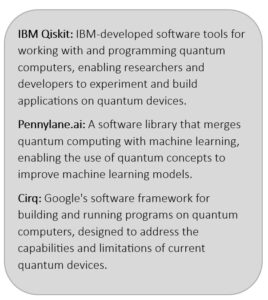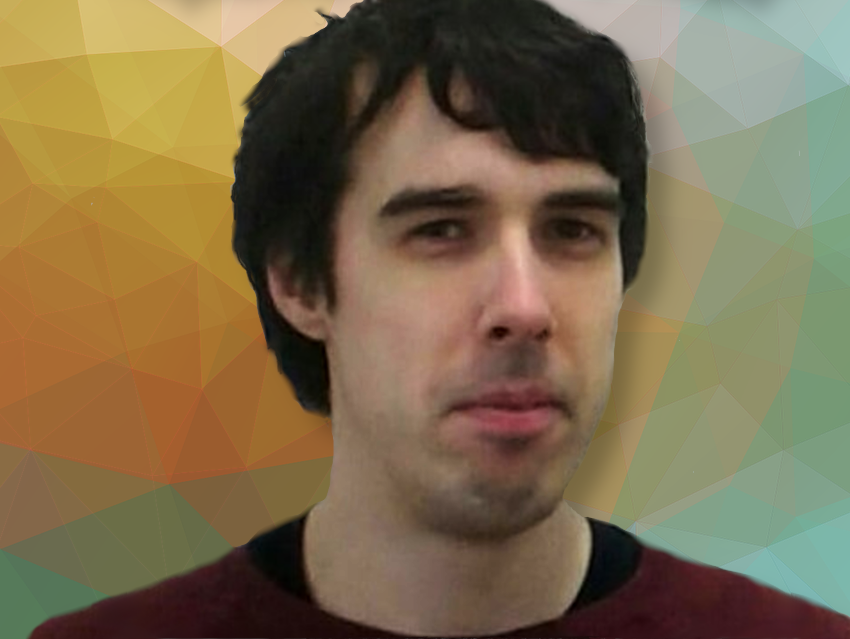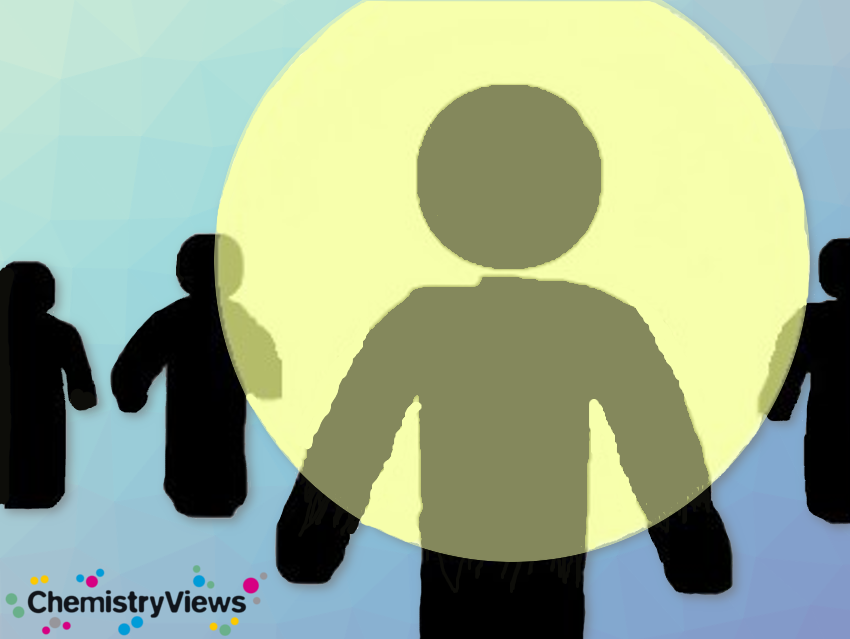Barry Peter Mant is a Quantum Software Engineer at ParityQC, Innsbruck, Austria. ParityQC calls itself the world’s only quantum architecture company. The company develops scalable quantum computers and an advanced operating system, ParityOS. Their unique approach is revolutionizing quantum computing by delivering powerful, error-correcting systems accessible via the cloud for diverse applications. Quantum computers have the potential to solve specific industry-relevant problems much faster than classical computers.
Here, Barry Mant talks to Gian Asara for ChemistryViews about his transition from academia to industry, and tips on how to get started in the quantum computing field.
Tell us a bit about how your career has developed, please.
After finishing an undergraduate MChem degree at the University of Aberdeen, UK, I went on to do a Ph.D. in theoretical chemistry. I then did three postdocs, two at University College London, UK, (one in physics and one in chemistry) and one at the University of Innsbruck, Austria, (in physics), all in the broad area of theoretical and computational chemistry.
Last year I decided to switch from academia to industry and took up a position as a Quantum Software Engineer at ParityQC in Innsbruck.
What do you enjoy most about your job? What would you like to be different?
Quantum computing is a very exciting field at the moment with new discoveries, ideas, and technological breakthroughs happening constantly. It is very interesting to be involved in this industry and apply new ideas and techniques.
At the same time, it can be difficult to keep up with what is happening and decide which ideas are worth spending the time to fully understand. So having more hours in the day would be very helpful – although probably most of us feel like that!
Describe your day at work: how much studying to keep up with an exponentially growing field, how much collaborative work, how much lonely coding and debugging.
My days vary (something else I enjoy about my role), but typically involve time spent developing software, discussing ideas with colleagues, pen and paper derivations, writing technical documents, and reading papers. The balance between individual coding work and collaboration just depends on what we are working on.
I try to read (or at least skim) one paper a day but as mentioned above, it can be difficult to keep up. Thankfully the most important papers tend to be easy to spot via LinkedIn or my colleagues passing on relevant ones they’ve found.
Where is your team located geographically? Do you work remotely or on-site? Is remote work a reliable option for this type of technical work?
ParityQC headquarters are in Innsbruck, where I am based, and we also have a new office in Hamburg, Germany. Innsbruck is a small city so I go to the office every day (It is a five-minute cycle from my apartment!) but working remotely is also possible. Video calls, messaging applications, and Git tools make it quite easy for us to work well together, even when not everyone can make it to the office.
ParityQC and the German Aerospace Center (DLR) plan to build ion trap quantum computers in Germany. Can you comment on this?
This is a very exciting undertaking involving five companies (ParityQC, eleQtron, NXP® Semiconductors Germany, QUDORA Technologies, and Universal Quantum Deutschland). ParityQC’s role in the project is to apply the company’s expertise in quantum architecture and co-design and work closely with the other companies in the consortium that are manufacturing the computer.
This work is being carried out by our German team in Hamburg and they are indeed collaborating closely with other members of the consortium.
Can you please give a bit more background on the ion trap quantum computer?
The quantum computer is being fabricated by eleQtron and is based on a Magnetic Gradient Induced Coupling (MAGIC) quantum processor with ParityQC architecture. This method allows individual qubits to be controlled with high-frequency pulses in the microwave range, allowing for commercial signal sources to be used. All qubits are coupled to one another using magnetic field gradients.
NXP Semiconductors are contributing the sensor solutions and the control and regulation electronics that are necessary for embedding in classic computers. ParityQC is developing an operating system and hardware-specific algorithms for the quantum computer. The ParityQC architecture allows error-corrected quantum computers to be built thanks to its high parallelizability and modularizability.
Are you still involved in academic research? If so, can you say a few words about it? Is GitHub the best way to learn more about your research projects?
My work involves a lot of R&D: from prototyping code ideas to implementing or testing new ideas from the literature. To give an example, one of the projects I am currently working on is Automated Solution Path for Quantum Computing (ASQ), funded by the Austrian Research Promotion Agency (FFG). The goal of the project is to automate the development of quantum algorithms. Currently, a lot of decisions need to be taken by a user before they can carry out calculations using a quantum computer such as how to encode the problem, which algorithm to use, which hardware, etc. We are developing tools to automate this process so that users can more easily use quantum computers for their problems. The project naturally involves lots of trial and error and testing of ideas to find optimal strategies for automation.
We publish our main breakthroughs and new ideas, and these are collected on our website, which is the best way to learn about our research projects. Here you can find papers explaining the underlying ideas of the Parity Architecture, implementation of quantum algorithms using the Parity approach, and applications to various optimization problems.
We have also recently started a series of videos called “Parity Principles” where each team gives an overview of their work for a general audience. In one of them, my colleague Josua Unger and I discuss how to solve optimization problems with quantum computers.
How much (if any) of the knowledge you gained from studying chemistry do you value and use in your daily work? Do you think that chemistry is a valuable choice?
I can confidently say that my background in theoretical chemistry and the numerical, problem-solving, and coding skills it gave me have been essential for my current role. I use these general skills daily but chemistry is also likely to be an important application of quantum computing. Applying quantum computing and the ParityQC architecture to chemical problems is my favorite part of my job.
I have found the transition from academic theoretical chemistry to the quantum computing industry to be very smooth. There is a lot of overlap in the skills required for both fields, and I think that if you have experience in code design, implementation of mathematical methods, and creative thinking, the quantum computing field will feel very familiar.
How is chemistry involved in quantum computing?
It is anticipated that quantum computers will be able to increase the accuracy of chemical simulations and allow larger systems to be studied. The idea goes back to Feynman: chemical systems are quantum mechanical in nature and so a computer operating on quantum principles should be beneficial to study them.
So far calculations for the electronic structure of small molecules (water, ammonia, hydrogen chains) have been carried out on quantum computers and there is a lot of work going on to develop algorithms with the help of quantum simulators. There are also ideas and algorithms for applying quantum computers for nuclear dynamics, spectroscopic, and scattering calculations. I’m looking forward to seeing how things develop in the field in the next 5–10 years.
What programming language(s) do you use for your work and why?
I currently use Python exclusively because of its powerful features and ease of use. Like most theoretical chemists, I previously used and wrote a lot of code in Fortran. While I’ll still praise the latter for its speed, I can’t deny that Python is easier to work with, especially for rapid prototyping of ideas.
What learning resources would you recommend to non-experts?
There are a lot of great YouTube videos on quantum computing with levels going from layman to expert. Now that quantum computing is starting to impact many industries, there are also a lot of industry-specific introductory papers to give people an overview of the field. For chemists, I can recommend an excellent article by Daniel Claudino: Daniel Claudino, The basics of quantum computing for chemists, Int. J. Quantum. Chem. 2022, 122 e26990. https://doi.org/10.1002/qua.26990).
What other skills do you need?
The quantum computing industry requires all kinds of skills. At ParityQC we have staff with backgrounds in physics, chemistry, mathematics, computing science, and engineering. It really is a collaborative discipline and that is without taking into account the people who actually build quantum computers. Right now the hardware platforms are as diverse as superconducting chips to ion traps to neutral atoms, each requiring specialized skills.
In your opinion, which is better: IBM-Qiskit, or pennylane.ai, or cirq?
 So far I have only used Qiskit, but the others also have their own special features. As a theoretical chemist, I would draw parallels with the many ab initio codes available today: they all do similar things but you will choose one over the other depending on what you want to do.
So far I have only used Qiskit, but the others also have their own special features. As a theoretical chemist, I would draw parallels with the many ab initio codes available today: they all do similar things but you will choose one over the other depending on what you want to do.
These packages are a good way to interact with and test quantum circuits, but more importantly to understand the underlying theory.
What do you think a student (or worse, an employee who can barely find time to study) should choose as his or her preferred learning material?
Perhaps the most hands-on way to get started in quantum computing would be to interact with one of the packages mentioned above. Qiskit in particular has excellent tutorials that can be run inside a Jupyter Notebook. For theoretical chemists, there are even tools to get started with quantum computing for electronic structure and dynamics.
For students, I should also mention the classic textbook, Quantum Computation and Quantum Information by Isaac Chuang and Michael Nielsen, which is regarded as the “Bible” of the field.
And during the study of chemistry, is there any subject (apart from quantum chemistry, of course, and programming) that you think will be useful for the subsequent focus on quantum computing?
At the most fundamental level, the theory of quantum computing is essentially matrix mechanics, so courses in linear algebra would be useful. Computers can, of course, do all of these matrix operations but even an introductory understanding of operator algebra will go a long way. Most chemists are probably more familiar with the wave mechanics approach applied to the hydrogen atom, the harmonic oscillator, etc., but for quantum computing, it is the language of matrix mechanics that is more useful.
Thank you for the interview.
Barry P. Mant studied chemistry at the University of Aberdeen, UK, and received his Ph.D. in antimatter chemistry from the same university in 2016. He was a Research Associate in the Department of Physics and Astronomy at University College London, UK, from 2016 to 2018, a Postdoctoral Researcher at the Institute of Ion Physics and Applied Physics at the University of Innsbruck, Austria, from 2019 to 2020, and a Research Fellow in the Department of Chemistry at University College, London, from 2020 to 2022.
Since 2022, Barry Mant is a Quantum Software Engineer at ParityQC, Innsbruck.
Selected Publications
- F. Dominguez, J. Unger, M. Traube, B. Mant, C. Ertler, W. Lechner, Encoding-independent optimization problem formulation for quantum computing, Front. Quantum Sci. Technol. 2023. https://doi.org/10.3389/frqst.2023.1229471
- Lea Bosse, Barry P. Mant, Domenik Schleier, Marius Gerlach, Ingo Fischer, Anke Krueger, Patrick Hemberger, Graham Worth, Threshold Photoelectron Spectrum of Cyclobutadiene: Comparison with Time-Dependent Wavepacket Simulations, J. Phys. Chem. Lett. 2021, 12(29), 6901–6906. https://doi.org/10.1021/acs.jpclett.1c01848
- Barry P. Mant, Franco A. Gianturco, Roland Wester, Ersin Yurtsever, Lola González-Sánchez, Rovibrational quenching of C2− anions in collisions with He, Ne, and Ar atoms, Phys. Rev. A 2020, 102, 062810. https://doi.org/10.1103/PhysRevA.102.062810
- B. P. Mant, M. M. Law, K. Strasburger, Hydrogen molecule-antihydrogen atom potential energy surface and scattering calculations, J. Phys. B: At. Mol. Opt. Phys. 2019, 52 185201. https://doi.org/10.1088/1361-6455/ab312e
- B. P. Mant, A. Yachmenev, J. Tennyson, S.N. Yurchenko, ExoMol molecular line lists – XXVII. Spectra of C2H4, Monthly Notices of the Royal Astronomical Society 2018, 478(3), 3220–3232. https://doi.org/10.1093/mnras/sty1239
Also of Interest
All interviews in the ChemistryViews series Chemists Talk About Their Jobs





